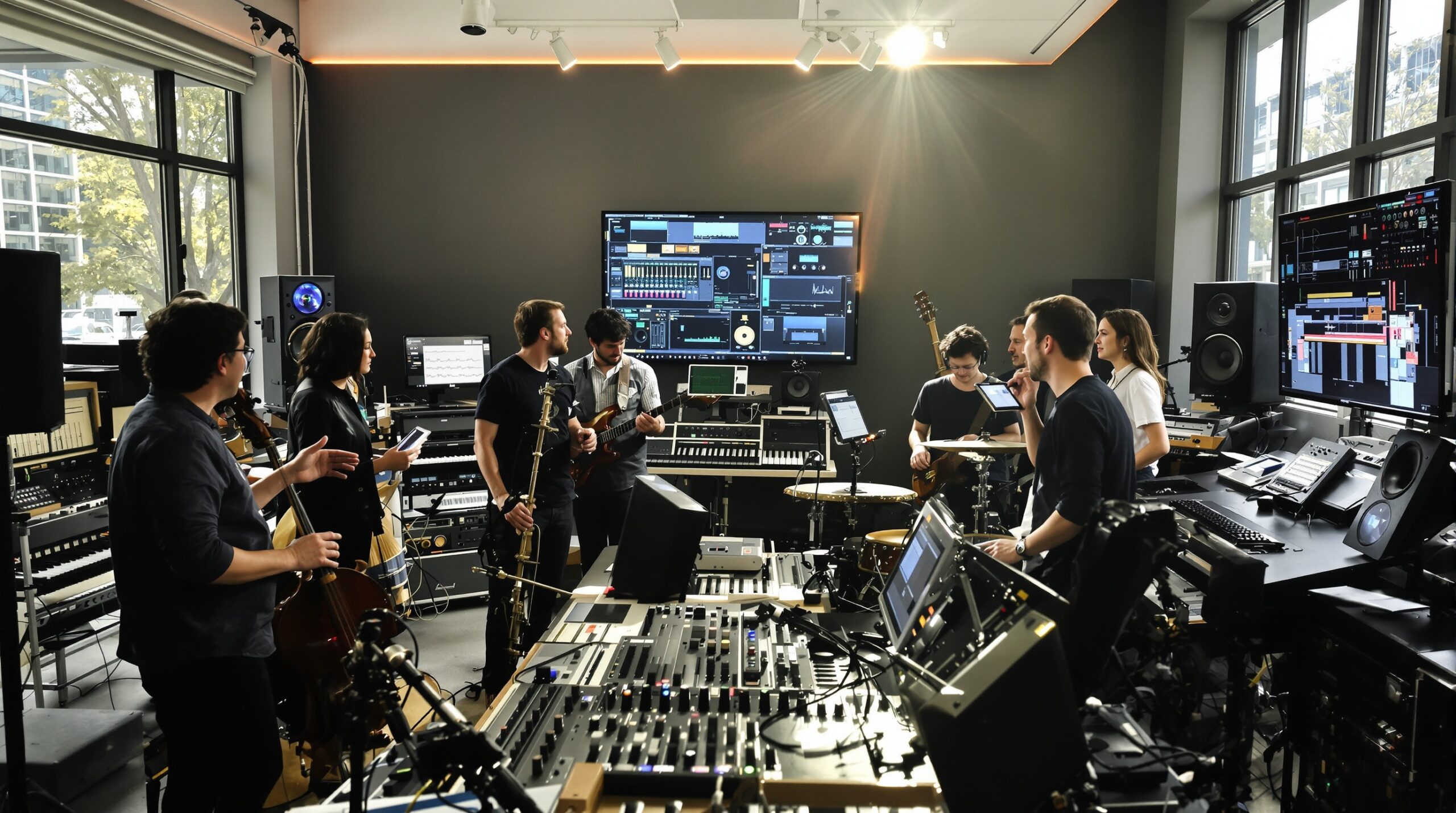Artificial intelligence is rapidly transforming every creative discipline, and music composition stands at the forefront of this revolution. Musicians, composers, and producers increasingly rely on cutting-edge AI tools to expand their creative horizons. The synergy between human creativity and algorithmic intelligence is reshaping how artists create, share, and experience music. These groundbreaking advancements offer new sounds, structures, and collaborative possibilities unimaginable only a few years ago.
The Evolution of AI in the Music Industry
Early AI-driven music tools focused on replicating simple melodies or analyzing existing works. Their limitations often led to repetitive or uninspired results. However, continuous progress in deep learning and machine learning algorithms has dramatically improved AI’s musical potential. These advancements enable AI to understand musical theory, styles, and emotions, producing complex and captivating compositions.
Engineers and researchers draw on massive datasets of recorded music, feeding them into complex neural networks. This process allows AI to “learn” from centuries of musical history across countless genres. As a result, AI-generated music now displays a depth of feeling and originality that rivals human composers. Breakthroughs in computational power and software design have also made such tools more accessible to the public.
AI-Powered Composition Tools: Beyond Automation
AI composition tools have evolved well beyond basic automation. Services like OpenAI’s MuseNet and Google’s Magenta create multi-instrumental pieces in various musical styles. These platforms do not simply stitch together pre-existing phrases; they generate entirely new compositions based on provided input or themes. Some applications allow users to specify mood, tempo, or genre for a tailored musical experience.
With these tools, creators gain a powerful partner in the composition process. AI complements human intuition by offering fresh perspectives and helping overcome creative blocks. Many artists describe AI as a collaborator, inspiring innovative ideas while retaining human control and emotional nuance. The fusion of math-driven algorithms with musical tradition generates entirely new forms of artistic expression.
Collaborative Synergy: Humans and AI Composers
Contemporary composers often incorporate AI-generated motifs, harmonies, or rhythmic ideas into their unique styles. This collaboration blurs the line between human-led and machine-led creation. AI-generated sketches inspire novel chord changes, new timbres, and unconventional arrangements, pushing composers outside their usual comfort zones.
Musicians gain access to unfamiliar musical languages, quickly broadening their palettes. Some bands and solo artists even use AI to co-create entire albums, guiding the software while preserving creative direction. Rather than replacing musicians, AI functions as an imaginative tool, opening unexplored creative pathways. This collaborative process fosters a continuous feedback loop between natural and artificial intelligence, producing dynamic and boundary-breaking music.
Democratization of Music Creation
AI-powered composition democratizes the art of music-making. Novices and enthusiasts can now compose, arrange, and produce professional-quality music without extensive training. User-friendly interfaces enable anyone to craft unique songs by adjusting parameters and offering creative input. These accessibility advances lower barriers for aspiring musicians, making music composition more inclusive and diverse.
Educational platforms use AI to help students understand complex concepts like structure, harmony, and melody. By receiving immediate feedback on their creations, students accelerate their learning. Hand-in-hand with experienced teachers, AI encourages experimentation. The result is a new generation of composers who blend technological savvy with traditional musical skill.
Redefining Genres and Soundscapes
AI compositions do not simply echo established musical genres; they enable entirely new forms and sonic vocabularies. Machine learning algorithms can generate intricate rhythmic patterns, novel instrumentations, and genre hybrids. These AI-generated soundscapes often surprise listeners, expanding popular and experimental music in unprecedented directions.
For example, AI might combine jazz improvisation techniques with electronic beats and modal harmonies. These genre-bending creations invite fresh audiences and blur musical boundaries. Record labels, film studios, and digital content creators now explore AI-generated music for film scores, video games, and advertisements. This widespread adoption signals a future where music becomes more dynamic and personalized.
Challenges and Ethical Considerations
Despite enthusiastic adoption, revolutionary AI advancements in music composition raise legal and ethical questions. Who owns the rights to music created with AI tools? Copyright laws struggle to adapt to works originating from human-AI collaboration, leaving many issues unresolved. Musicians and legal experts debate whether AI can truly possess creative authorship or if it is a servant to the human artist.
Some critics fear that widespread AI-generated music could flood markets with generic or soulless content. There is also concern that AI may erode traditional employment for composers and songwriters. Addressing these challenges will require thoughtful policy, technological safeguards, and a renewed focus on human-AI partnership rather than competition. The path forward necessitates balancing innovation, artistic integrity, and legal clarity.
The Future of AI in Music Composition
As AI capabilities improve, music composition will undoubtedly become more collaborative, personalized, and diverse. Composers will continue experimenting with hybrid workflows, merging their signature voices with the vast computational creativity AI offers. New performance formats, such as AI-assisted live improvisation, will emerge, thrilling audiences with previously unimaginable sonic adventures.
Startups, technology giants, and educational institutions are investing heavily in AI music research. These investments foster the development of smarter, more context-aware composition tools. Future AI systems may even infer a creator’s emotional state and respond accordingly, further blurring the lines between human and machine expression. As society adapts, public conversations about ethics, equity, and the creative process will help shape responsible innovation.
Conclusion: Embracing an AI-Infused Musical Era
Revolutionary AI advancements are fundamentally redefining contemporary music composition. Rather than replacing human creativity, AI augments artistic vision, offering fresh perspectives and inspiring new forms. The journey forward promises collaboration, creative expansion, and a profound transformation of how we conceive and experience music. By embracing responsible progress, artists and audiences collectively shape a vibrant, interconnected musical future shaped by both mind and machine.

